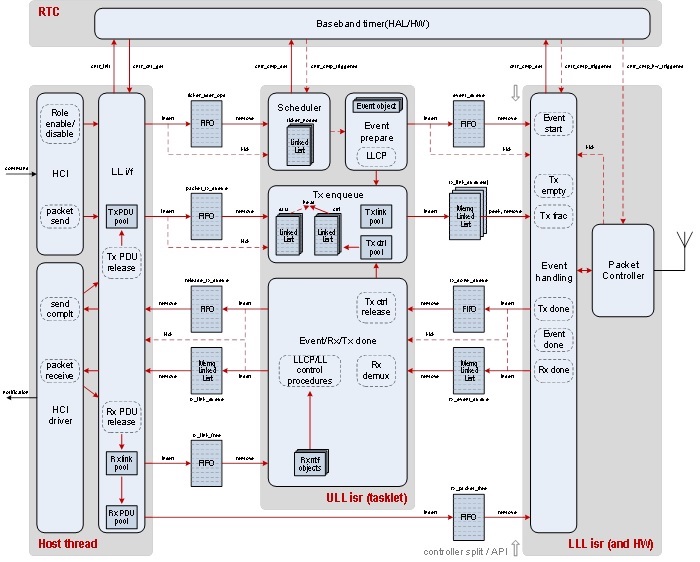Written by Ioannis Glaropoulos, Software System Architect at Nordic Semiconductor and active member of the Zephyr Technical Steering Committee
Last month, the Zephyr Project announced the release of Zephyr RTOS 2.0 and we are excited to share the details with you! Zephyr 2.0 is the first release of Zephyr RTOS after the 1.14 release with Long-Term support in April 2019. It is also a huge step up from the 1.14 release, bringing a wide list of new features, significant enhancements in existing features, as well as a large list of new HW platforms and development boards.
On the Kernel side, we enhanced the compatibility with 64-bit architectures, and significantly improved the precision of timeouts, by boosting the default tick rate for tickless kernels.
Additionally, we are excited to welcome ARM Cortex-R into the list of architectures supported in Zephyr RTOS.

A major achievement in this release is the stabilization of the Bluetooth Low Energy (BLE) split controller, which is now the default BLE controller in the Zephyr RTOS. The new BLE controller enables support for multi-vendor Bluetooth v5.0 radio hardware with a single controller code-base, thanks to a layered modular architecture, where most of the controller code is hardware agnostic. The new controller also features improved scheduling of continuous scanning and directed advertising, and increased radio time utilization. The latter significantly improves the achievable communication bandwidth – among other use-cases – in BLE Mesh networking.
In the networking area, we introduced support for SOCKS5 proxy, an Internet protocol that exchanges network packets between a client and server through a proxy server. In addition, we added support for 6LoCAN, a 6Lo adaption layer for Controller Area Networks, and for Point-to-Point Protocol (PPP), which is used to establish a direct connection between two nodes. We, finally, added support for UpdateHub, an end-to-end solution for large scale over-the-air device updates.
A most sincere thank you to the more than 215 developers who contributed to this release. Not only did you add a wealth of new features during the merge window, you also rallied together as a community during the stabilization period across time zones, companies, architectures, and even weekends, to find and fix bugs, to make Zephyr 2.0 yet another great release! This release would not have been possible without your hard work!
To learn more about Zephyr Project please see our Getting Started Guide, join the mailing list or follow #zephyrproject on IRC.



